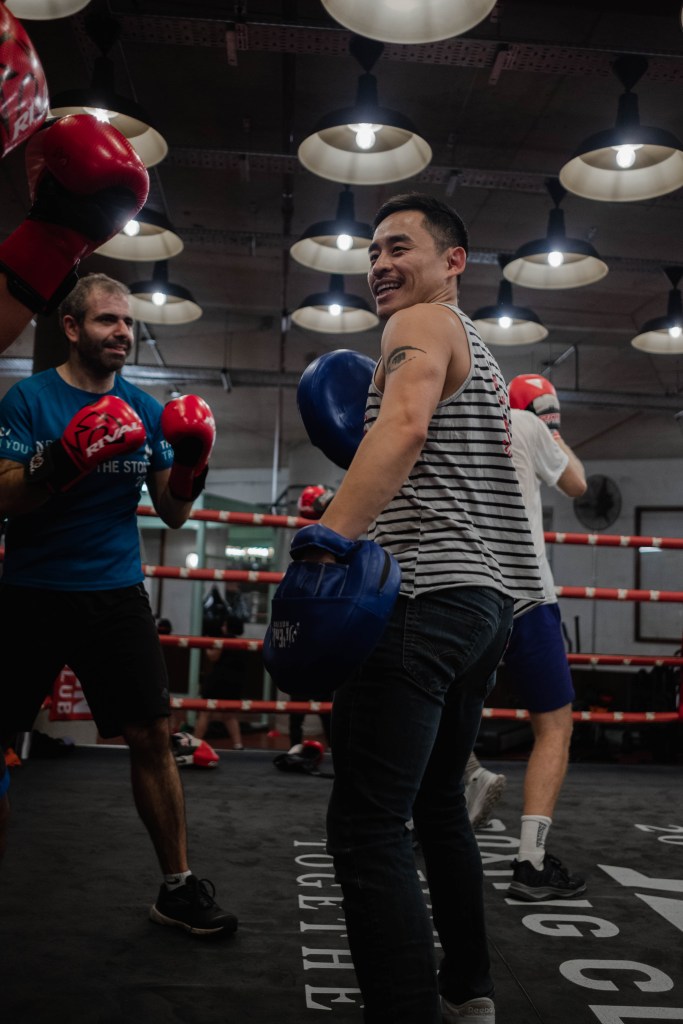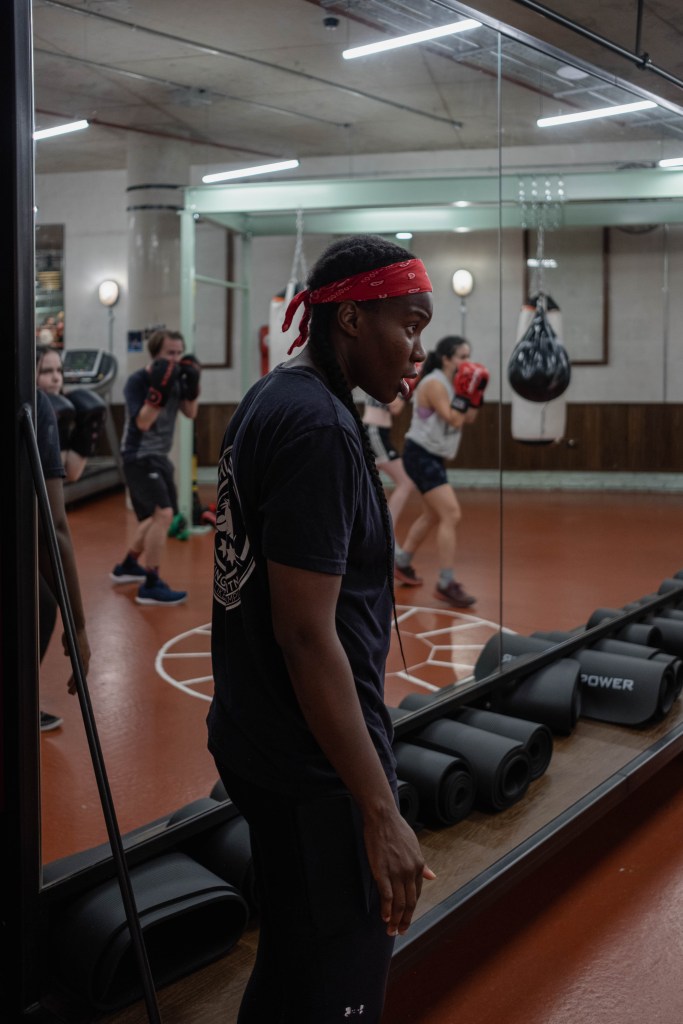How a queer boxing club built an inclusive, affirming space for LGBTQ+ folks to fall in love with sport

Knockout Boxing Club has created a space for queer sport-lovers to thrive. (Supplied)
Since 2016, a group of LGBTQ+ people have been coming together each week in London to do what they love best – boxing.
Members of Knockout LGBTQ+ Boxing Club meet three times a week, for classes that embrace people of all genders, sexualities and abilities.
Outside of the gym, Knockout LGBTQ+ Boxing Club gives queer people a chance to make friends with others in their community.
“We believe it’s very important to have queer spaces that are not just about parties, drugs and alcohol – except for bars and clubs there are very few spaces,” says Pierre Gouverneur, co-chairperson of Knockout LGBTQ+ Boxing.
“We try to offer an opportunity to people who have never boxed before to discover the sport because, let’s be honest, a lot of boxing spaces are a little bit homophobic and transphobic.”
The goal is simple – it’s all about creating a space for London’s LGBTQ+ community to come together and enjoy sport in an inclusive, welcoming environment.

It’s not about being the best or about creating a pathway for boxers to win Olympic medals – in fact, it’s got very little to do with ability at all.
“It doesn’t matter if you’re bad or good, the whole point of sport is just getting better,” Gouverneur says.
“Even if you’re not great the first day, if you enjoy it, if you make friends, if you enjoy the experience, you will eventually get better.”
LGBTQ+ boxers sign up to meet other queer people
Knockout recently surveyed its members and found that most of their members joined to meet other LGBTQ+ people, proving just how vital queer spaces that don’t centre around alcohol really are.
Of those surveyed, 82 per cent of Knockout members said they went to classes to meet other queer people. Fifty-five per cent said they joined so they could learn how to box in a safe space, while 52 per cent said it was to improve their health and fitness.
An additional 14 per cent of members said they had joined Knockout to learn how to defend themselves.

In short, it’s not a traditional sporting environment where it’s all about gains and improvement. It’s about creating a safe space where communities can flourish.
“I’d say what people get is the opportunity to learn boxing in a safe and judgement-free environment while making new connections,” Gouverneur told PinkNews.
Gouverneur knows how important that is because of his own experiences. He’s been boxing for 10 years, but he recalls feeling he was “too femme” for sport as a child.
It wasn’t until he went to a boxing club run by a queer woman that his vision of what a sporting club could look like started to shift.
“I’m so sad that I never felt safe in other spaces, so I think it’s really important to have [places] where queer people don’t have to worry about how they’re going to be perceived by other members of the club. They don’t have to worry about [being] too butch or too femme or what toilets they’re going to use.”
He explains: “The reality is being queer-friendly takes more than saying, ‘We welcome queer people’. It takes a real effort to decide what happens if there’s a homophobic or transphobic incident.
“Just saying your space welcomes queer people isn’t enough. There’s so much work that needs to happen to make sure queer people feel safe to participate in sport.”

